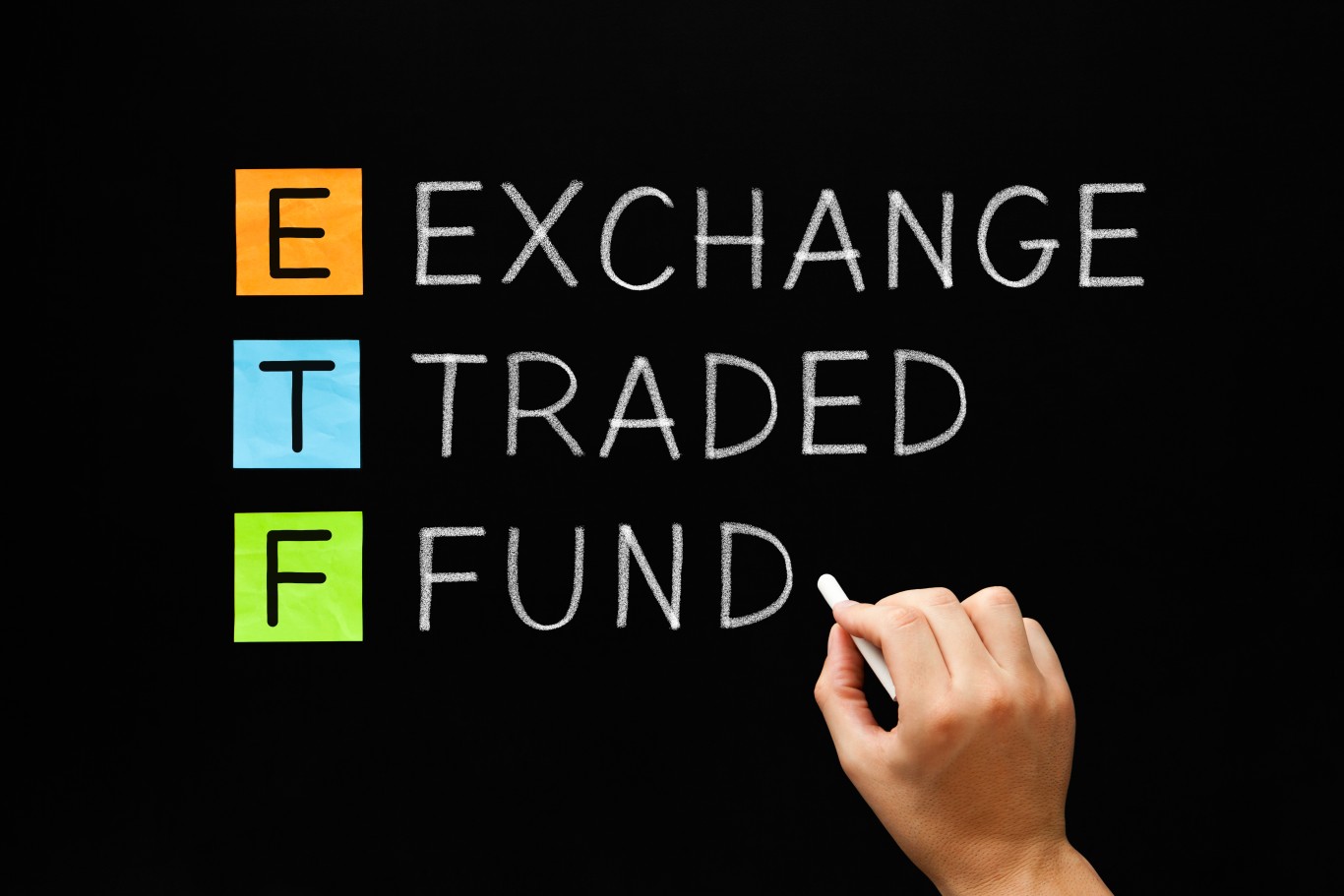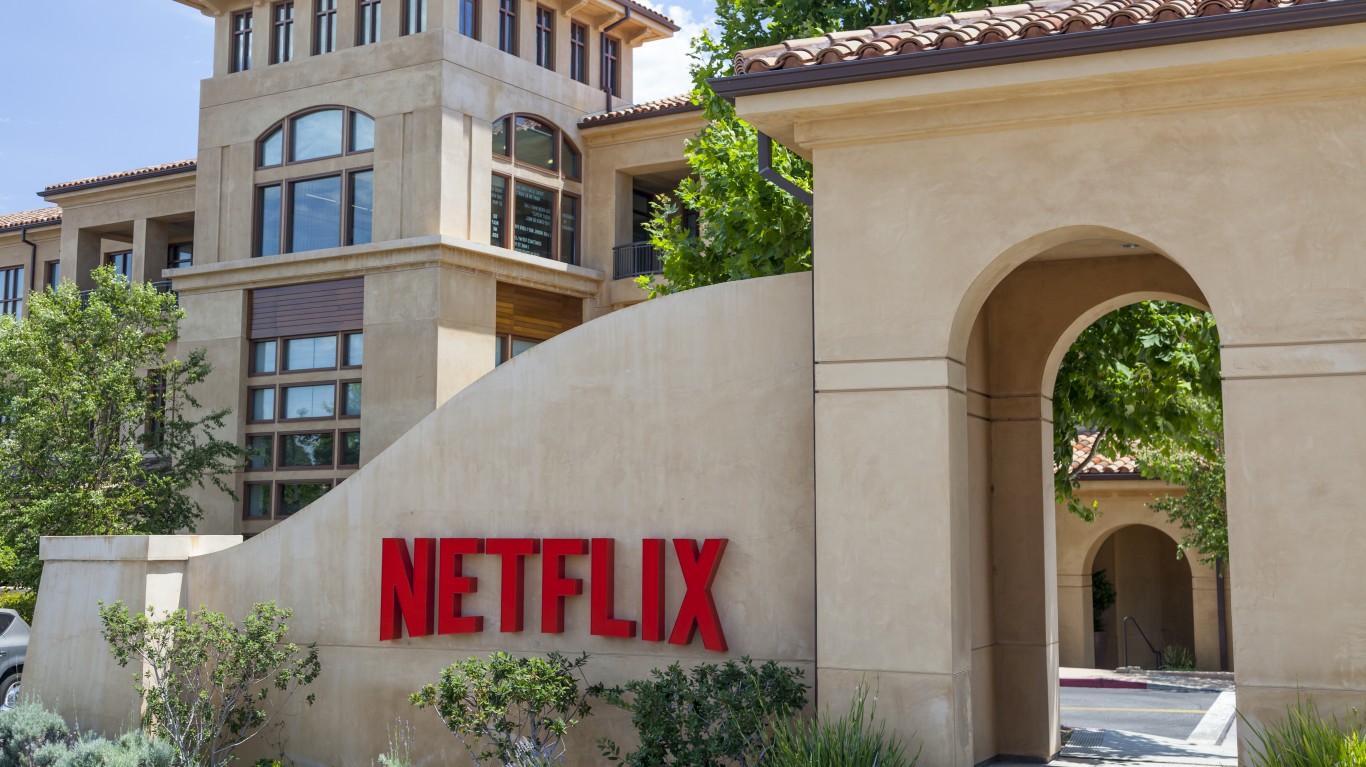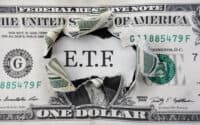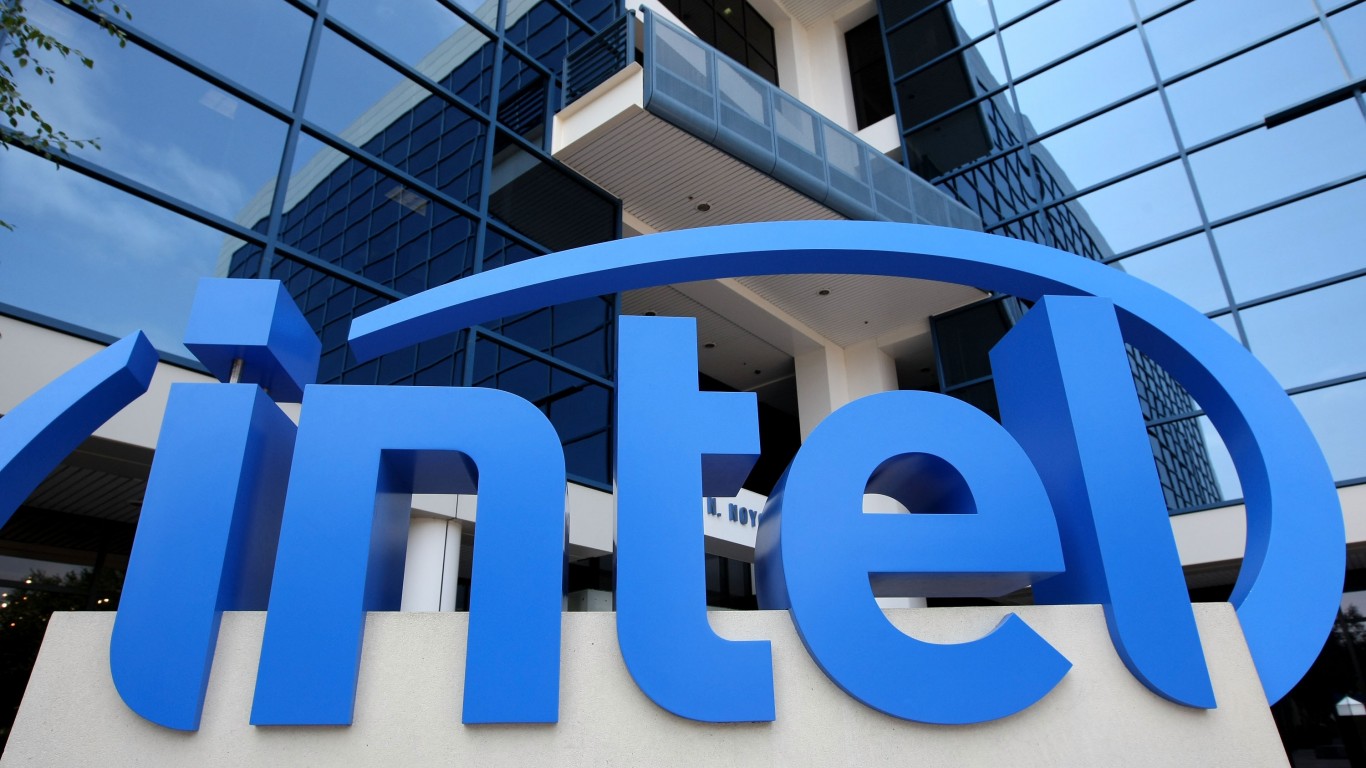
It takes a certain kind of courage to short sell blue chips, such as the Dow Jones industrial average components. Short sellers are betting on these companies to fail, or at least for their share prices to fall handily. Plus, those sellers are responsible for paying the dividends on the stocks they short.
Maybe it is little surprise that only two of the 30 Dow stocks had notable short interest between July 31 and August 15; that is, more than 50 million shares short. In fact, six of them had short interest of more than 35 million shares.
[in-text-ad]
While the bull market is quite long in the tooth — now more than 10 years old — and concern about a possible recession remains as the trade war with China continues to ramp up, the markets are still not that far from all-time highs. Investors may wonder then what the short sellers expect from some of the biggest, most well-respected names on Wall Street.
As of the mid-August settlement date, the most recently reported period, short sellers favored Intel Corp. (NASDAQ: INTC), Pfizer Inc. (NYSE: PFE) and Microsoft Corp. (NASDAQ: MSFT) above all other Dow stocks.
Intel
> Shares short: more than 55.51 million
> Change from prior period: −12.4%
> Percentage of float: 1.3
The number of shares short had increased in four of the prior six periods to the highest it has been so far this year. Despite this sizable retreat, Intel has become the most shorted Dow stock. The average daily trading volume increased again in the latest period, and as of the middle of this month, it would take about two days for investors to cover all their short positions.
Like other tech giants, Intel has considerable exposure to trade issues with China. The share price ended the short interest period more than 10% lower, much of that decline coming early in the month. Note that the Nasdaq ended those two weeks down over 4%, though it tried to stage a recovery afterward.
Intel was last seen trading at $45.56 a share, nearer the 52-week low of $42.36 than the multiyear high of $59.59 seen this past spring. The latest share price is nearly 3% lower than at the beginning of the year, while the Nasdaq is up more than 18% year to date and the Dow has seen a gain of about 11%.
Pfizer
> Shares short: almost 55.23 million
> Change from prior period: −18.7%
> Percentage of float: 1.0
For only the second time since Pfizer’s reign as king of the hill began in May, the stock has slipped to the number two spot on this list. Note though that the latest figure is nowhere near the 156 million shares short seen back in January. The latest days to cover reading was a little more than two.
Pfizer is a leader in one of the sectors that were holding back the S&P 500 during the short interest period. Its shares ended the first two weeks of the month about 10% lower than where they started, despite being up marginally in the first couple of days in the period. Meanwhile, the Dow retreated around 4% between the settlement dates.
Shares closed most recently at $34.84 apiece, fractionally lower for the past week. Pfizer’s 52-week low of $35.86 was seen on the latest settlement date, and the 52-week high of $46.47 was from this past December. The stock now trades 20% or so lower than at the beginning of the year.
Microsoft
> Shares short: more than 48.88 million
> Change from prior period: −7.9%
> Percentage of float: 0.7
Microsoft’s short interest had grown for five consecutive periods, but the 52-week high of more than 58 million shares short was posted back in January. The average daily trading volume grew to its highest level since early in the year, and by the most recent settlement date, the number of days it would take for investors to cover all their short positions was less than two.
Microsoft seemed like a real contender for a major Pentagon contract set to be awarded by the end of this month. Short sellers watched the share price largely track the S&P 500 in those two weeks and end down less than 3%. The shares climbed a bit afterward though. The S&P 500 ended the initial half of this month with a retreat of about 4%.
After slipping less than 2% in the past week, Microsoft stock ended trading most recently at $135.45 a share. That was in a 52-week range of $93.96 (seen last December) to $141.68 (in late July). The most recent share price is more than 33% higher than at the beginning of the year, compared to that gain of 11% or so for the Dow.
[in-text-ad]
And the Rest
Rounding out the top six most shorted Dow stocks on the most recent settlement date were Apple Inc. (NASDAQ: AAPL), Cisco Systems Inc. (NASDAQ: CSCO) and Exxon Mobil Corp. (NYSE: XOM). The former saw an increase in the number of its shares short during the first two weeks of August, while the latter two had shrinking short interest. Share prices of all three pulled back in that time. The iPhone maker has been looking to get into the streaming market, but is it too late? Cisco was punished despite an earnings beat, and the price of oil has been a drag on the oil companies and the S&P 500, possibly a new bear market in the sector.
Also notice on the following list of short interest changes in Dow stocks as of August 15 the surges at Dow (trade war concerns), Merck (post-earnings rally) and Nike (acquisition):
| Dow Stock | Short (millions) | Change | % Float |
|---|---|---|---|
| Intel | 55.51 | −12.40% | 1.25% |
| Pfizer | 55.23 | −18.72% | 1.00% |
| Microsoft | 48.89 | −7.89% | 0.65% |
| Apple | 45.59 | 6.02% | 1.01% |
| Cisco | 37.95 | −11.95% | 0.89% |
| Exxon | 37.48 | −0.57% | 0.89% |
| Verizon | 33.34 | 0.19% | 0.81% |
| Coca-Cola | 33.13 | 2.44% | 0.78% |
| Visa | 27.28 | −3.67% | 1.58% |
| Walgreens | 26.92 | 3.67% | 3.57% |
| Merck | 21.83 | 16.19% | 0.85% |
| JPMorgan | 21.41 | −7.52% | 0.68% |
| Procter & Gamble | 20.33 | −2.29% | 0.81% |
| Chevron | 18.37 | −10.28% | 0.97% |
| Disney | 16.91 | −3.37% | 0.94% |
| Walmart | 16.50 | −2.02% | 1.17% |
| IBM | 16.06 | −8.28% | 1.81% |
| Johnson & Johnson | 15.50 | −1.97% | 0.59% |
| Home Depot | 10.32 | 0.39% | 0.94% |
| Dow | 9.26 | 27.43% | 1.25% |
| 3M | 9.05 | −4.45% | 1.58% |
| Nike | 8.85 | 14.87% | 0.73% |
| Caterpillar | 7.83 | 2.20% | 1.40% |
| Goldman Sachs | 7.75 | 1.67% | 2.30% |
| UnitedHealth | 7.39 | 3.91% | 0.78% |
| American Express | 6.25 | 8.57% | 0.75% |
| McDonald’s | 6.19 | 3.92% | 0.82% |
| United Technologies | 5.74 | −0.24% | 0.67% |
| Boeing | 5.37 | 1.61% | 0.96% |
| Travelers | 4.96 | −10.94% | 1.91% |
Is Your Money Earning the Best Possible Rate? (Sponsor)
Let’s face it: If your money is just sitting in a checking account, you’re losing value every single day. With most checking accounts offering little to no interest, the cash you worked so hard to save is gradually being eroded by inflation.
However, by moving that money into a high-yield savings account, you can put your cash to work, growing steadily with little to no effort on your part. In just a few clicks, you can set up a high-yield savings account and start earning interest immediately.
There are plenty of reputable banks and online platforms that offer competitive rates, and many of them come with zero fees and no minimum balance requirements. Click here to see if you’re earning the best possible rate on your money!
Thank you for reading! Have some feedback for us?
Contact the 24/7 Wall St. editorial team.
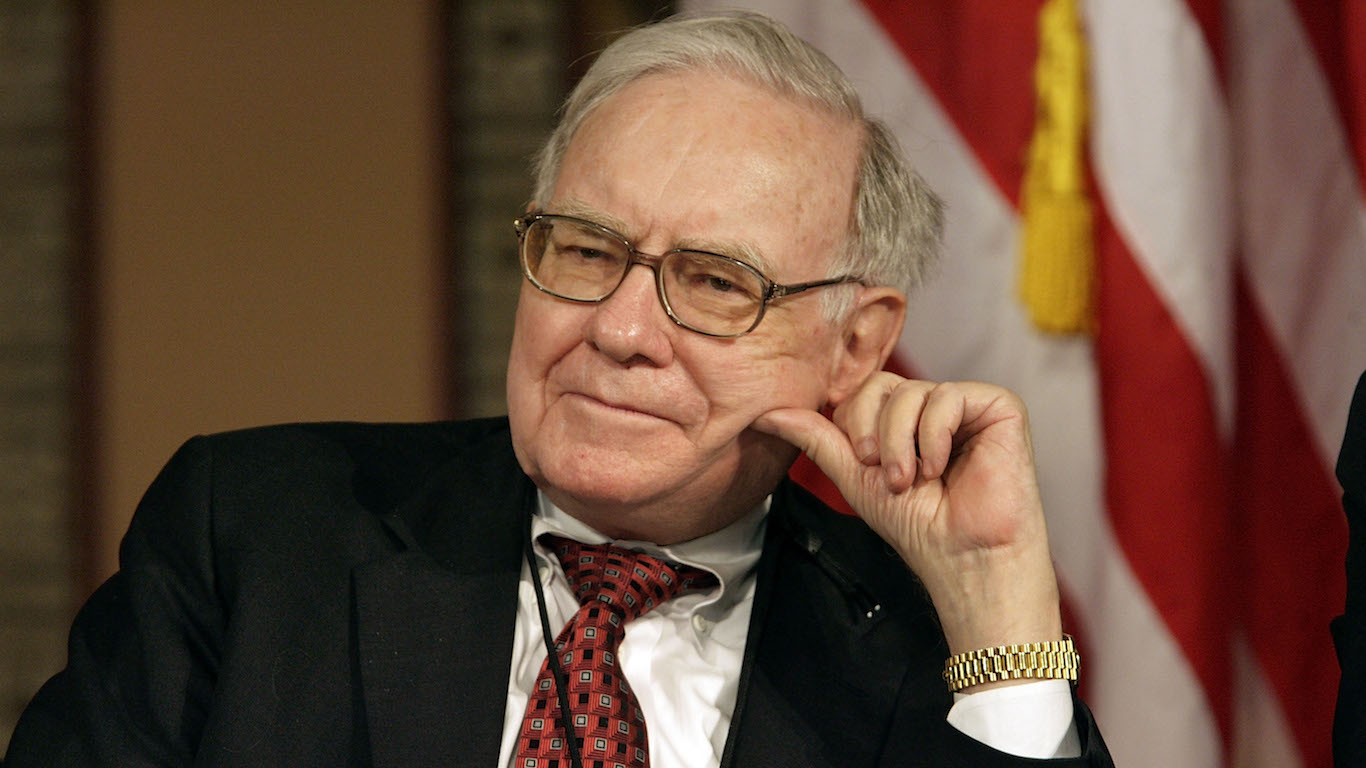 24/7 Wall St.
24/7 Wall St.